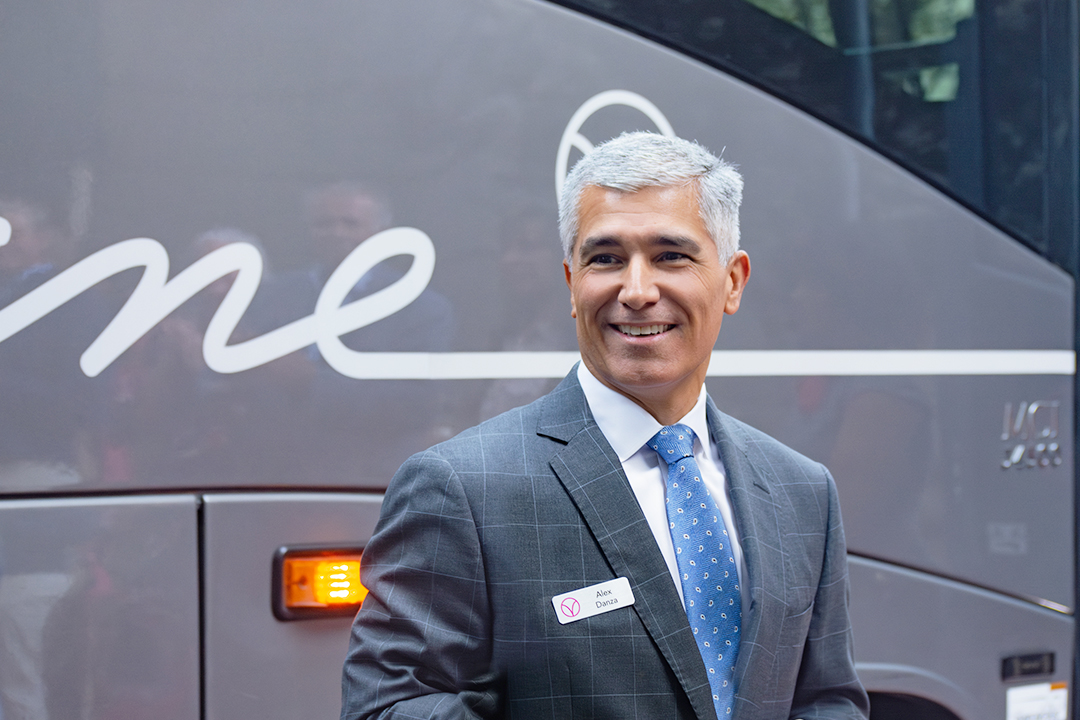
The modern founder story is usually loud. Social media threads. Podcast interviews. Conference panels. For many startup leaders, building a company now means building a personal brand in public. Visibility has become a stand-in for authority. Charisma often outpaces discipline.
But not everyone leads that way.
Alexander Danza, founder and CEO of Vonlane, has taken a different route entirely. Over the past decade, he has grown a regional motorcoach company into a trusted alternative to short-haul air travel across Texas and the Southeast. Vonlane didn’t grow because Danza went viral. It grew because the product worked, the execution was reliable, and the business expanded only when it made sense to do so.
This article looks at what that kind of leadership offers, not just to transportation, but to how founders build in quiet, focused ways without chasing constant attention.
The Decision to Stay Behind the Brand
Danza is not a name you see often in headlines. He does not post threads about productivity or raise his profile through personal storytelling. There are no founder documentaries or heavily produced interviews. And yet Vonlane has earned a strong reputation, especially among business travelers who prioritize comfort, consistency, and calm.
This is not an accident. Danza built Vonlane to be service-driven, not personality-led. He understood early that the target customer, a business professional traveling between cities, did not need to be dazzled by founder charisma. They needed a reliable experience.
In that sense, Danza chose to let the service speak for the brand, and to let the brand lead the public conversation. This approach has kept the focus where it belongs: on the customer.
Substance First, Always
Before founding Vonlane, Danza worked in business consulting and later led an executive transportation firm. These were not roles that rewarded performance for the sake of optics. They rewarded precision, problem-solving, and reliability.
That background shaped how Vonlane was designed. Its motorcoaches are not filled with unnecessary flash. They are spacious, quiet, clean, and intentional. The routes are carefully chosen. The terminals are hotel lobbies, not chaotic depots. The onboard service feels more like flying first-class than riding a bus.
There is a kind of restraint in how Vonlane operates. It is not trying to grow faster than it can handle. It is not interested in racing into new markets just to please investors. It expands when demand shows up and when it can deliver the same level of service in a new city that it does in Dallas or Houston.
That steady approach to leadership rarely gets the kind of media attention that loud founders attract. But it’s what gives Vonlane the ability to scale without cutting corners.
Quiet Builders Still Exist
What Danza represents is not a throwback. It’s a style of leadership that has always existed but rarely gets highlighted. In other industries, names like Jim Sinegal of Costco or Ingvar Kamprad of IKEA built generational companies without needing the spotlight. They stayed close to the operation, close to the customer, and made decisions based on discipline, not attention.
Danza fits that mold. He focuses on keeping the promise Vonlane makes every day. Depart on time. Arrive comfortably. Serve people with care. That sounds simple until you try to do it over thousands of trips, across multiple cities, with a team that has to coordinate every detail from check-in to departure.
Quiet leadership does not mean small vision. It means building from the inside out and keeping your systems stronger than your slogans.
The Problem with Charisma-First Growth
Many startup failures in recent years have been tied not just to bad economics, but to over-reliance on founder personality. When a company’s credibility depends on how entertaining or compelling the CEO is, it becomes fragile. Investors, employees, and customers may buy in early, but they lose confidence when delivery fails.
That problem is especially dangerous in-service industries. Transportation, logistics, and hospitality run on trust and predictability. They do not reward theatrical leadership. They reward operational excellence.
Danza’s style has kept Vonlane out of those traps. There is no overpromising. There are no moonshot claims. Just clear, consistent service that meets a very real need. It’s not a company built to be the next tech unicorn. It’s a company built to work.
Leading Without Needing Credit
Another important dimension to Danza’s leadership is how he treats visibility as optional. He does not chase the title of thought leader. He does not frame himself as a disruptor. He has given interviews when it made sense, participated in podcasts where useful, but he has never tried to turn himself into the story.
This matters, especially for younger founders who feel pressure to perform online in order to validate their work. Danza proves that you can build something valuable without narrating every move. That kind of discipline is rare. It is also sustainable.
When a leader is not the product, they can focus on the system. They can build processes that last longer than their own tenure. They can grow the team without making everything depend on personal direction. That is the kind of leadership that creates long-term value.
A Model Worth Studying
There is a lot to learn from how Danza has built Vonlane. The company did not take shortcuts. It did not confuse attention for progress. It stayed close to its core user. It scaled slowly, intentionally, and with operational integrity.
That model may not suit every founder or every market. But for industries where service is the brand, and where consistency is the differentiator, it’s worth looking closely at how Vonlane has pulled it off. Danza built a transportation company that people trust, without making himself the center of the story.
And in a business culture that often favors noise, that kind of leadership feels more relevant than ever.


